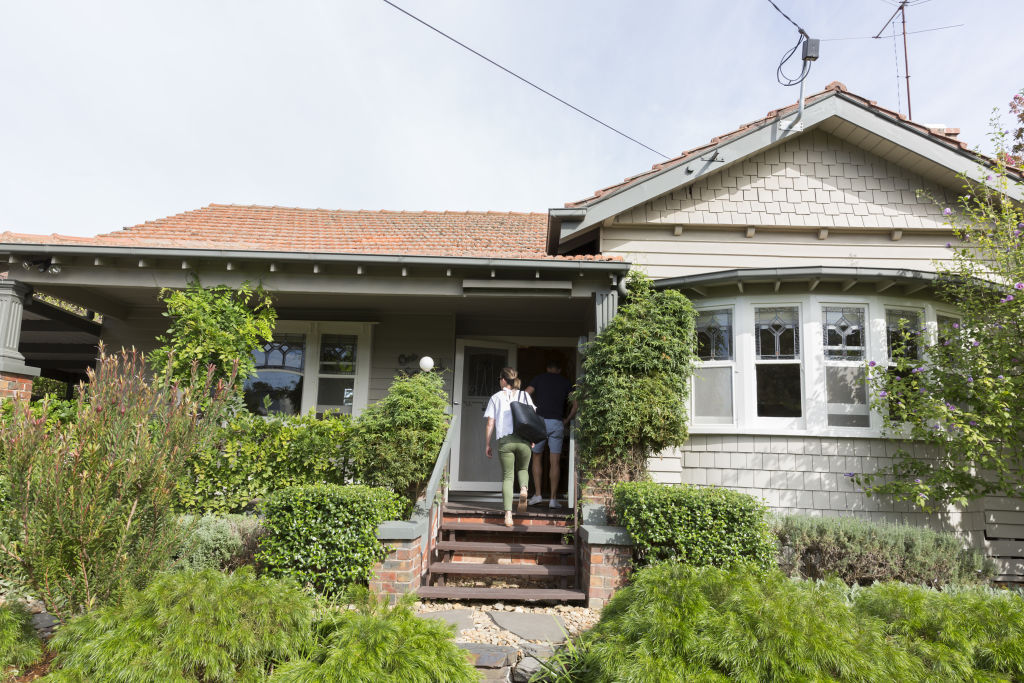Home owners borrow against properties for renovations, school fees, holidays: survey

Home owners are borrowing against their properties to fund renovations or consumer spending that can range from school fees to holidays or shopping trips.
Some 17 per cent of home owners have added to their mortgages to pay for other expenses, a survey from comparison platform Finder found.
But experts have warned borrowers of the risks involved in taking on more debt if their cash flow is not strong or they still owe a significant sum on their mortgage.
The survey comes as housing prices have been falling across most capital cities, amid a regulatory crackdown on lending and the scrutiny of last year’s financial services royal commission.
“We’re in a position now where property prices are falling, so it means it’s more important to be aware of what your property is really worth,” Finder insights manager Graham Cooke told Domain.
“It is a good option for some people … anyone who’s purchased recently would need to be cautious.”
Of those who borrowed against their home equity, 34 per cent said they used the funds for home renovations.
Other popular uses were to pay for a child’s education (19 per cent), to fund household expenses (16 per cent) or to pay off a personal loan (11 per cent) or a credit card (7 per cent).
A smaller number of borrowers used the cash to pay for a holiday, shopping spree, medical costs, to start a business or to settle a business debt.
Renovations made “a lot more sense” than paying for uses such as a shopping spree, Mr Cooke said.
“There’s a slight concern, the number of people are borrowing against their house to pay off a personal loan – it’s a sign some people have fallen down a bit of a debt trap.”
The survey of 2030 Australians including 826 mortgage holders was conducted in February, and does not show whether the rate of borrowing against home equity is changing as the market weakens.
Ads for Commonwealth Bank during the boom with the tagline “equity, mate” popularised the idea of borrowing against home equity to fund spending.
Borrowing for renovations is still common, according to Chris Foster-Ramsay, principal finance broker at Foster Ramsay Finance.
But as home values have fallen, the amount of home equity available to borrow for a renovation may sometimes be less than in the past, he said.
“Rather than upsizing and buying, in the same area, a bigger home, they [clients] are now looking at staying where they are and renovating to a better standard of living,” he said.
“Once you do the numbers around stamp duty and buying and selling, and uncertainty about being able to move the home quickly, I think there’s a lot of merit in that.”
But he said borrowing against home equity did not make as much sense for an owner who had bought at the recent market peak and borrowed about 80 per cent of the home’s value.
“They may have stretched themselves to buy in an area they want to live, and have every intention of renovating but they need to wait for capital growth,” he said.
Borrowing for debt consolidation has become less common given lender hesitation, while borrowing for holidays has also dropped off, he said.
ProSolution Private Clients director Stuart Wemyss said most banks would still approve borrowing against equity, as long as a home owner had at least 20 per cent equity in the property.
But for significant renovations, banks would often want to pay the builder directly, while for other purposes the bank might want proof of where the money is being spent.
Borrowing for renovations made more sense for owners in an area with a trend of good long-term growth who hoped to stay in the home for more than a decade, he said.
“[Otherwise] you want to be prudent about the amount of money you’re capitalising, or putting into the property,” he said.
He no longer receives many inquiries about borrowing for holidays.
“If it’s your marginal, average mum and dad, I think the banks would be reluctant to do it,” he said. “Typically people in that situation aren’t going to have a strong amount of cash flow.”
Have you borrowed against your home equity to fund spending? Get in touch: elizabeth.redman@domain.com.au.
We recommend
We thought you might like
States
Capital Cities
Capital Cities - Rentals
Popular Areas
Allhomes
More







